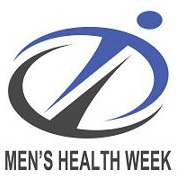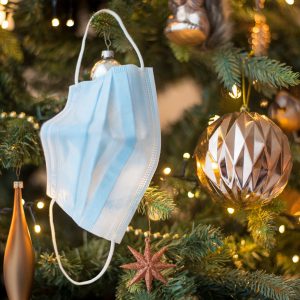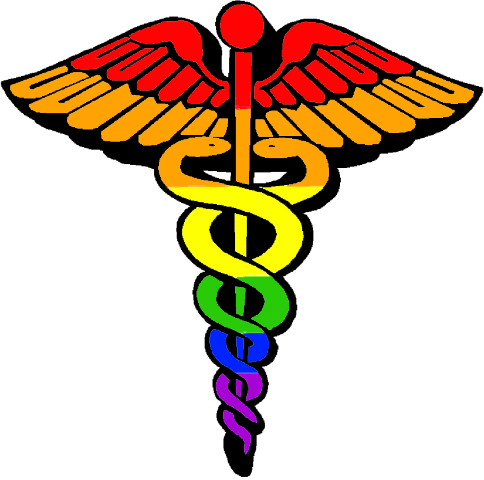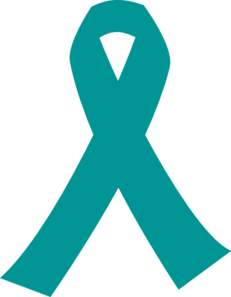Last Updated on October 18, 2024
As I approach 70 years old, I find myself being more careful going down stairs and reaching out more often to catch my balance. Although I have not had a significant fall — unless I count when I’m mountain biking — I still worry about it like most older adults.
More than 25% of adults aged 65 years or older fall each year, with one out of five falls resulting in a serious injury such as fractures of the hip, wrist, humerus, and pelvis, head and brain injury, chronic disabilities, and even death (36,000 in 2020). The risk increases with age, approximately 16% from 65-69 years old to 35% for those older than 85 years old, as does the severity of injury — especially those with osteoporosis, a disease that makes bones weak and likely to break.
Risk Factors
While falls are more common in those with frailty, immobility, disabilities, and acute and chronic health impairment, healthy older adults still fear falling, even if they have never fallen. This fear may lead some older adults to avoid activities such as walking, shopping, or taking part in social and recreational activities.
Most falls can be attributed to a combination of risk factors which can be addressed to reduce the chances of a significant fall. The most common risk factors include:
- The effects of aging — in middle age and older adults muscle mass loss can occur at about 1% per year reaching 50% loss by 80 years of age;
- A sedentary lifestyle leads to lower body or overall weakness and slower reflexes;
- Difficulties with walking and balance;
- Fatigue and inadequate sleep;
- Home hazards or dangers such as broken or uneven steps, and throw rugs or clutter that can be tripped over;
- Ice, snow, wet surfaces, rocks, tree roots, and other environmental hazards;
- Vision problems and reduced hearing;
- Use of medicines, such as blood pressure drugs, tranquilizers, sedatives, or antidepressants — even some over-the-counter medicines can affect alertness, balance, and steadiness;
- Many conditions, such as diabetes, heart, muscle joint, and nerve disease, or problems with your thyroid, feet, or blood vessels can affect balance and lead to a fall;
- Mild cognitive impairment or certain types of dementia;
- Foot pain or poor footwear;
- Vitamin D deficiency and bone loss;
- Use of alcohol, marijuana, and other substances that impair functioning; and
- Conditions that cause rushed movement to the bathroom, such as incontinence.
Since the chances of falling increase with the number of risk factors, planning ahead and addressing these factors can significantly reduce the risk of falls.
Prevention
The best ways to start preventing falls are to be aware of your risk and to take care of your overall health. There are many other ways to lessen your risk of falls and the serious injuries associated with them.
Stay Physically Active
Regular exercise that makes you stronger by improving muscle function and endurance can improve your balance and reduce your risk of falls. Strength training using weights, calisthenics, or resistance bands will also build legs, hips, and core muscle strength which helps with stability and coordination.
Some modifications will be needed if you have osteoporosis or other chronic conditions. Work with your healthcare provider and/or a physical trainer to create an exercise program that is fun and right for you.
Exercise also improves mobility by keeping your joints, tendons, and ligaments flexible. Include mild weight-bearing activities, such as walking or climbing stairs, to slow bone loss from osteoporosis.
It is best to pursue activities that you can perform easily without undue risk and are enjoyable for you. Check with your healthcare provider before attempting vigorous activities.
Try to get at least 150 minutes of physical activity per week.
Do Balance Exercises
Yoga, Pilates, and tai chi can all improve your balance, coordination, and muscle strength. Many other types of exercises, sports, and recreational activities can improve these as well.
A 2019 systematic review analyzing 108 studies totaling 23,407 adults averaging 76 years old found that balance and functional exercises reduce the rate of falls by 24%.
Fall-proof Your Home
Most falls occur in and around your home. If possible, make these changes to your home that will help you avoid falls and ensure your safety.
- Make your home brighter, move or increase the number of light controls or use motion- or voice-activated electronics to avoid having to walk to switches, use night lights in hallways and bathrooms, and keep a flashlight and phone by your bed.
- Install railings on both sides of any stairways and grab bars in high-slip areas like the bathroom.
- Arrange furniture to maximize open space, keep walking areas free from clutter or unnecessary furniture, secure cords out of the way, attach carpets firmly to the floor with non-slip pads, and avoid small, unsecured area rugs.
- Place cookware and high-use items in easy-to-reach places.
- Try and get furniture that is at a height that is easy to get in and out of.
- Keep pets away from areas where they are underfoot.
- Wear non-slip footwear indoors.
- Use appropriate equipment, such as a sturdy step-stool or reach-stick, when getting objects that are over your head.
Test Your Vision and Hearing
Since even small changes in vision and hearing are linked to an increased risk for falls, you should have these checked on a regular basis. Correction of these will significantly reduce your risk of falling.
Wear your glasses or contacts as your eye doctor advises. When you get new eyeglasses or contact lenses, take time to get used to them before you do any significant activities.
If you have a hearing aid, be sure it fits well and wear it.
Find Out About the Side Effects of Any Medicines You Take
Since many medications can cause sedation, low blood pressure, lightheadedness, vertigo, muscle weakness, tremors, loss of balance, or other side-effects that increase the risk of falls, read the warning label of any medications you take. If a drug makes you sleepy or dizzy don’t try to do too much and tell your healthcare provider and/or pharmacist.
Our website BeMedwise has a wealth of information about medications and medication safety.
Get Enough Sleep
You are more likely to fall when tired, so adopt a better sleep routine.
- Limit screen time or blue light exposure before bed. Not having a television or computer in your bedroom helps.
- Limit daytime napping, develop a pre-sleep routine that includes relaxation practices, such as meditation or reading, and go to bed and wake up around the same time each day.
- Maintain a dark, cool environment, and quiet in your bedroom.
- Skip caffeine, large meals, and alcohol before bed.
- Exercise regularly, even if it’s just a daily short walk.
Avoid or Limit Alcohol and Other Substances That Can Cause Impairment
Too much alcohol can lead to balance problems and falls. The same is true of other intoxicants and mind-altering substances.
Stand Up Slowly
Getting up too quickly can cause your blood pressure to drop and can make you feel lightheaded. This is more likely when your blood pressure is too low, especially when you are dehydrated, malnourished, have certain illnesses, or take certain medications.
The best way to determine if you are at risk for this is to have your blood pressure checked when lying and standing.
Make sure you stay hydrated in hot weather and when you are sick.
Use An Assistive Device If You Need Help Staying Steady When You Walk
When used correctly, canes and walkers can help prevent falls. If your healthcare provider or physical/occupational therapist tells you to use one, make sure it’s the right size for you and you are instructed on the correct ways to use them.
Walker wheels should roll smoothly. If you borrow or rent walking support equipment from a friend, ask your healthcare provider or therapist to make sure the equipment is the correct size and is safe to use.
Canes and walkers are most important when moving around in areas you don’t know well or where the surface is uneven.
Consider a service dog if you qualify for one. NeedyMeds lists various organizations who can provide one at little or no cost.
Use Extra Caution When Walking On Wet or Icy Surfaces or Consider Staying Inside When the Weather Is Bad
Icy and wet surfaces are very slippery and can easily result in a fall. Use an ice melt product to clear icy areas by your doors and walkways and sand for better traction on icy and wet surfaces.
If you have to stay inside, some community services provide 24-hour delivery of prescriptions and groceries. Most will take orders over the phone or online. In addition, there are many ways to have take out food delivered to your residence..
Keep Your Hands Free
Your hands have an important role in keeping your balance, especially when you have to grip something to do so. If you are carrying something it is important to keep one or both of your hands free to hold on to railings or walking aids and protect yourself if you fall. Use of a shoulder bag, fanny pack, or backpack allows you to leave both hands free to help with balance.
If you need to move several items, such as groceries, take more trips so you only need to carry one or two things at a time and have a hand free to grab railings or other support structures. It may also help to use a grocery delivery service to bring items to your home, where you can transfer things inside more safely.
Choose the Right Footwear
Poorly fitting or inappropriate footwear can affect your balance or cause you to slip and lead to falls. To fully support your feet and prevent slipping, wear non-skid, rubber-soled and low-heeled shoes and avoid walking on stairs or floors in socks or in shoes and slippers with smooth soles.
Keep Your Bones Strong
Having healthy bones won’t necessarily prevent a fall, but if you do fall, healthy bones may help prevent serious injury, such as breaking a hip, wrist, or other bone. Fractures can lead to a hospital or nursing home stay, long-term disability, or even death.
Getting enough calcium and vitamin D can help keep your bones strong. So can staying active. Try to maintain a healthy weight, since being underweight increases the risk of bone loss and broken bones. Adequate nutrition is an important part of reducing fractures with falls.
Since tobacco and alcohol use may decrease your bone mass and increase your chance of fractures, quitting smoking and avoiding or limiting alcohol use also helps.
Prepare for a Fall
Keep a well-charged cordless or mobile phone with you at all times and arrange for daily contact with a family member or friend.
Emergency response systems are another option: These systems enable you to push a button on a special necklace or bracelet to call for help. Some smartwatches also have this feature.
What To Do If You Fall
Whether you are at home or somewhere else, a sudden fall can be startling and upsetting. If you do fall, stay as calm as possible and take the following steps:
Breathe. Take several deep breaths to try to relax. Remain still on the floor or ground for a few moments. This will help you get over the shock of falling.
Decide if you are hurt. Getting up too quickly or in the wrong way could make an injury worse, so do a quick assessment to determine how badly you are injured.
Get help. If you are hurt or need help and have an alert bracelet or other way, such as your cell phone, to notify someone if there is an emergency, do so now or if there is someone nearby ask them for help or to call 911.
Crawl to a sturdy chair. If you think you can get up safely without help, roll over onto your side.
Rest again while your body and blood pressure adjust. Slowly get up on your hands and knees, and crawl to a sturdy chair.
Slowly sit down in the chair. Put your hands on the chair seat and slide one foot forward so that it’s flat on the floor. Keep the other leg bent so the knee is on the floor. From this kneeling position, slowly rise and turn your body to sit in the chair. If you are alone and need further assistance call 911 if you were unable to before. Try to get into a comfortable position and wait for help to arrive.
Prevent the next fall. When you are able, determine what caused the fall and make any changes that will prevent another fall for this reason.
Falls are a common and sometimes serious problem for older adults. While they cannot be completely prevented, you can use the methods described in this blog to reduce your risk. If you do fall, remain calm and follow the steps above. In addition, always tell your healthcare provider if you have fallen since your last check-up, even if you were not hurt when you fell. Falls can alert your healthcare to the possibility of new medical problems or issues with your medications, eyesight, or hearing that can be corrected. Your healthcare provider may suggest physical therapy, a walking aid, and/or many of the methods listed above to help prevent future falls.





